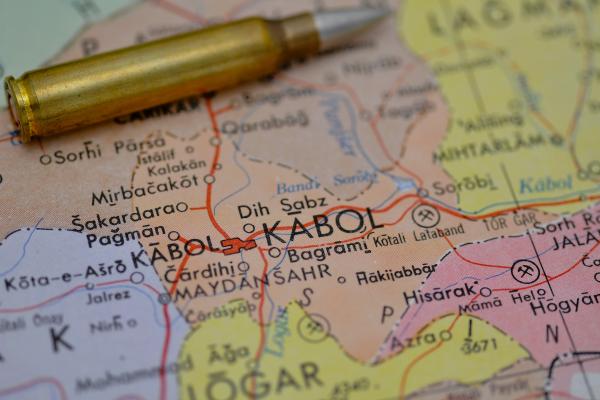I must confess: until I learned that my country had committed a crime against humanity there, I had never heard of the city of Kunduz. I suspect many of my fellow Americans hadn’t either — even during the height of the U.S. war in Afghanistan, only 17 percent of young Americans could find Afghanistan on a map.
This must change.
Especially for those of us who have few memories of American political life before the terrorist attacks on September 11, 2001, news from Afghanistan has been a steady drumbeat of ups and downs. The war — which has little to no effect on the day-to-day lives of Americans (other than, proponents of the war would argue, protecting us from the effects of terrorism in the United States) — seems removed from lives. And that’s reasonable. New world events have moved our attention away, and war weariness has long since set in as the U.S. involvement in Afghanistan drags on.
Even for Christians in the United States committed to political advocacy and public witness, other issues have long since taken the place of caring about Afghanistan.
But two reasons stand out for why war-weary Christians in the U.S. must care about recent events in Kunduz.
1. Are we complicit in committing crimes against humanity?
The United States has openly admitted to bombing a Doctors Without Borders hospital in Kunduz. “Mistakes happen,” the military has argued. “Collateral damage.”
But while President Obama apologized, Doctors Without Borders rightly argues that an apology barely grazes the surface of an appropriate response. The organization has called for an independent investigation by the International Humanitarian Fact-Finding Commission, a body established under the additional protocols of the Geneva Conventions to investigate violations of international humanitarian law and possible war crimes.
"We are still in the dark about why a well-known hospital full of patients and medical staff was repeatedly bombarded for more than an hour,” said Dr. Joanne Liu, the International President of Doctors Without Borders, after the bombing.
“We need to understand what happened and why."
How does Kunduz affect you, an American citizen? Warplanes bearing the same flag we pledge allegiance to bombed a hospital there in your name. An independent investigation must happen and specific members of the U.S. military must be held accountable. The U.S. and Afghan governments must agree for an investigation to begin, and that will only happen if U.S. citizens pressure their elected officials. One way to start is by adding your voice to the Doctors Without Borders petition and other platforms for change.
2. The U.S. will now keep a military presence in Afghanistan at least through 2017.
According to The Washington Post, Kunduz was the Taliban’s “first significant military gain since the militants were driven from power in late 2001.”
The Taliban has since retreated from Kunduz, but the advance signifies a major justification for President Obama’s announcement yesterday that he will no longer seek to end the U.S. military involvement there during his presidency. We will now keep a significant military presence in Afghanistan until at least 2017. The president also reversed an earlier pledge today to have U.S. troops only be based at the American Embassy in Kabul. Instead, U.S. troops will continue to operate from Afghan military bases.
How does Kunduz affect you, an American citizen? The war will now last at least 16 years. Soon, Americans will be old enough to vote who are too young to remember when the country first invaded Afghanistan. It’s now up to the next president to decide when the U.S. will end military operations in the country.
Americans who believe we should wage war in Afghanistan indefinitely should stand up and argue that position. I doubt any will. Americans are increasingly unsure whether the U.S. should have ever gone to war in Afghanistan in the first place. Last year the number of Americans who thought the wars were a mistake rose to 52 percent.
Christians were divided about the justification for the war in Afghanistan. But there shouldn’t be any division that the war must someday end. Events in Kunduz have prolonged the war again. American Christians must ask ourselves, how much longer?
Do you know where Kunduz is on a map? I learned today, and I invite you to do the same. Then ask yourself: do I care that a hospital was bombed in my name? Do I care that a war being waged in my name again has no end date?
Perhaps Kunduz matters to you.
Got something to say about what you're reading? We value your feedback!

